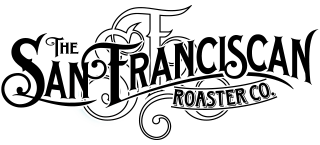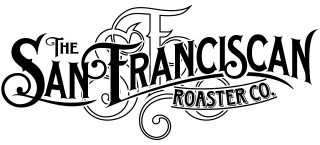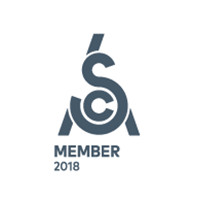
It’s a scenario that too many coffee roasting startups have found themselves in, often with little hope of escape.
Imagine a freshly minted roaster—let’s call him Ben—who’s finally saved up enough to buy his first commercial roaster. He’s done his homework, or so he thinks. Reviews online, some enthusiastic YouTube videos, and—most compellingly—a price tag that seems too good to be true. The Chinese-made roaster is less than half the price of its American or European counterparts. After all, he reasons, why pay double when this one claims to “do the same job”?
But a few months in, Ben realizes the true cost of his so-called bargain. The machine overheats, turning his precious coffee beans into inconsistent, charred piles; on other days, it can barely get hot enough. When he calls the seller for support, he’s met with silence or vague promises of solutions that never come. Frustrated, Ben tries to sell the machine, hoping to recoup some of his losses. But on the resale market, it’s worth a fraction of what he paid. He’s trapped with a product that doesn’t deliver, has no support, and no escape route.
It’s a story that’s playing out in roasting startups across the country, and, ironically, one of the few things that could change the dynamic might be found in a controversial economic policy.
Regardless of how you feel about the election, the outcome brings a certain clarity to the business environment. The winning candidate, Donald J Trump has made his stance clear: his administration intends to lower taxes and generate revenue through tariffs, particularly targeting Chinese imports. For the coffee industry, especially startups navigating an already risky path, this could mark the beginning of a new era—one that shields them from the pitfalls of cheap, unreliable equipment and nudges them toward a sustainable path to success.
The Perils of the “Bargain” Roaster
For many new roasting businesses, the allure of low-cost imports is undeniable. The startup world is tough on margins, and every dollar counts. But the decision to go for an affordable, foreign-made machine often comes with an invisible price. Chinese roasters—marketed as efficient and user-friendly—entice with their affordability, yet they rarely offer the reliability and precision that coffee roasting requires.
Ben’s story isn’t unique. Many of these machines struggle with basic functions, like temperature consistency, essential to maintaining roast quality. A sudden spike or dip can ruin a batch of beans, and without the necessary control, a roaster loses one of the few variables they can control in an otherwise unpredictable business. But beyond performance, the real trouble begins when things go wrong. If you’re dealing with a domestic or reputable European brand, you’d likely have a technician out within days or at least a support line offering guidance. For many who bought into the promise of these cheaper imports, there is simply no backup.
How Tariffs Could Change the Coffee Roasting Landscape
Enter the tariffs. While the broader economic implications of trade policy are complex and contested, for startups in the coffee roasting industry, the impact may be straightforward. Higher tariffs on Chinese goods make the low-cost machines less attractive. For new businesses, this could mean reconsidering their initial equipment investment and, ultimately, steering them away from the lure of these “affordable” options.
In his own words, Trump has committed to “putting America first” through tariffs aimed specifically at Chinese imports, and his administration is betting on generating revenue through these import fees. The effect, however unintentional, could be that more coffee roasting startups opt for machines built by American companies or other brands known for quality. And while these machines carry a higher initial price tag, they deliver on durability, precision, and, most importantly, customer support. For Ben, and others like him, this shift could mean the difference between a machine that’s an asset to his business and one that becomes a costly liability.
A Smart Investment in Quality and Support
For roasters, buying a quality machine isn’t just about having the best equipment; it’s about building a business that can reliably deliver a premium product to customers. Choosing an American machine means getting access to an established support network, a local technician just a call away, and a steady stream of parts if anything breaks. Established brands often have dedicated training programs for new roasters, ensuring they know how to make the most of their machines and avoid common pitfalls.
Choosing a quality machine can also bolster a roaster’s reputation in the market. Customers and wholesale partners are drawn to brands that commit to craftsmanship and quality, something that’s difficult to convey when batches are inconsistent or tinged with the telltale signs of equipment failure. By steering more roasting startups toward high-quality machines, tariffs could help create an industry where new businesses prioritize quality over upfront cost—a strategy that, in the long run, might just make the difference between those that last and those that fade away.
Revitalizing the American Roaster Manufacturing Market
As American companies in this sector watch the impact of the proposed tariffs, there’s cautious optimism that it could level the playing field. If low-cost imports become less appealing, domestic manufacturers have a rare opportunity to capture the attention of startups and existing roasters alike. Many American roaster manufacturers are small, specialized companies that place a premium on quality and craftsmanship.
For roasting startups, these tariffs could ultimately serve as a guardrail, keeping them from making a choice that may be more trouble than it’s worth. The pressure to find the cheapest option may subside as these startups realize that quality and reliable support are investments worth making. After all, coffee roasting is an art and a science, and it demands equipment that can live up to the challenge.
American-made roasters can be affordable
With a more certain economic future, the promise of lower taxes and stable interest rates, new startups can take advantage of competitive finance plans and lower their initial startup costs. It is worthwhile borrowing, when you are paying for a business asset which is guaranteed for life and will hold its value. Talk to us today, you could soon have a stately San Franciscan Roaster sitting proudly in your coffee shop, delivering roasts that your customers rave about.


